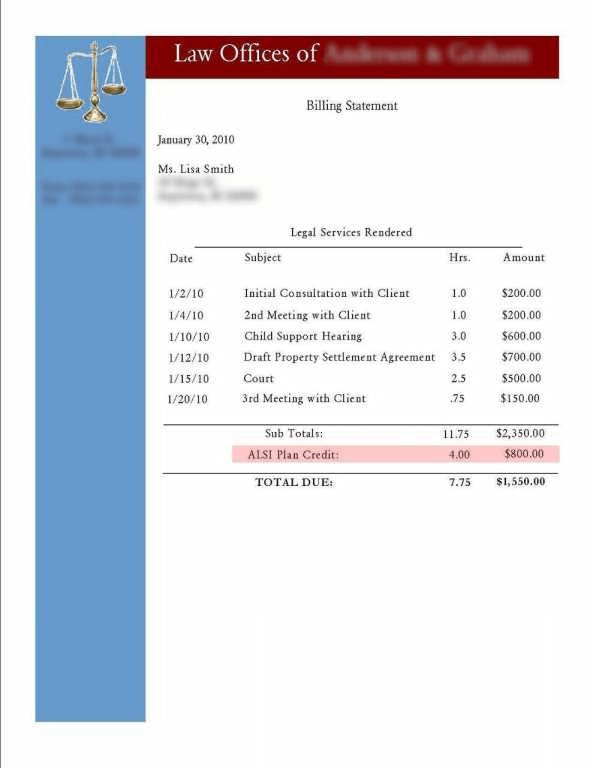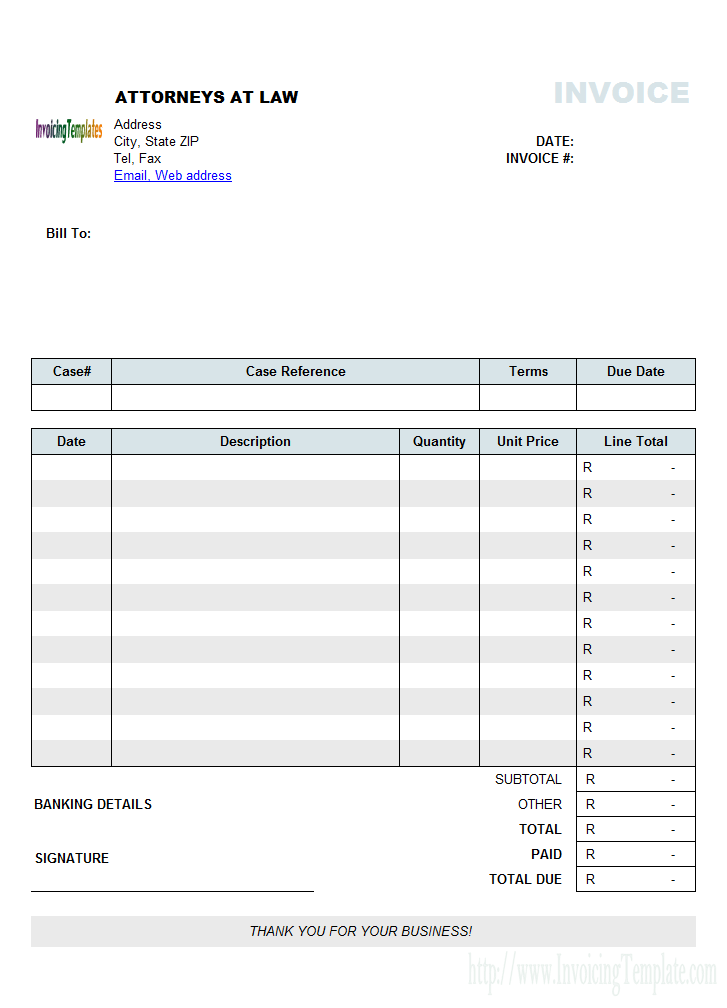
Attorney invoices are essential accounting documents needed for a successful legal practice. Attorneys used invoices to bill clients officially for their services. After carrying out a legal service, an attorney needs to create a detailed invoice that itemizes all the services provided plus the total amount due for the client. An attorney invoice should include the number of hours billed plus tax and other details that would affect the total amount.
Administrative tasks like billing and invoicing may demand so much time if you don’t adopt a flexible solution to hand it. You can streamline the process to reduce the time spent on creating and sending your attorney invoice to clients by choosing an electronic invoicing solution
Bonsai makes tracking and entering billable time easy for attorneys with intuitive solutions that save and make them concentrate on their core legal services. If this sounds good to you, browse through the templates available to choose a fast invoicing solution.

If you are still wondering how to customize your attorney invoice, see the next section of this article.
The anatomy of an attorney invoice template
What should your attorney invoice include? Attorney invoices could take any form; basically, the bill should cover the following categories:
1. Basic data in an attorney invoice template
The first part of your law firm invoice template should cover the essential details that your client needs to clear your invoice. Below is the basic minimum date required, especially if you want to edit an attorney invoice online or you are working with time.
The invoice should clarify the following:
- Your personal information- chamber name, email address, and phone contact
- Information of client responsible for the payment (name, contact address, contact, and phone number)
- Amount due
- Due date of payment
- Acceptable terms & method
- Where to send payment
Note that you are in business, and you are sending your attorney invoice to get paid; hence, make it simple to improve the client's response time.
2. The obvious details in an attorney invoice template
Keep in mind the below details when writing your attorney invoice template:
2.1. Previous payment in an attorney invoice template
Adding this information to help clients see their payment tally posted to their account. Usually, a client may not be eager to check this section if your invoice except there’s a disagreement or balance dispute drawn from their retainer. If applicable, your record will serve as a positive reinforcement to that effect.
2.2. Fees per hour break down in an attorney invoice template
A transparent record of your charges per hour gives the client a sense of your performance and accountability. The client would see if you accidentally bill for paralegals at the rate of a senior attorney. It's easy to make such a mistake, but it's not an idea you want a client to have about you.
Remember, clients often hire attorneys based on trust.
2.3. Billing date in an attorney invoice template
Add the date you created the attorney invoice. It would matter when a client who pays late complains about the last payment not reflecting in the invoice.

2.4. Discount and late payment in an attorney invoice template
If you decide to offer client discounts for early payment, add the rate and penalty for a delayed response. Deal with care here, but the policy may help set some clear boundaries for payment.
3. Hidden details in an attorney invoice template
Outline service against performance -list what you've done against the promised deliverables. Also, let the client know what you gave as discounts if applicable. It is worthless to you and the client if it's not seen. Beware of bringing up a discount after sending your attorney invoice; the client may assume you are utilizing the tool to take advantage of them.
Work schedule date - it’s not common to find work completion date for each service completed on invoices in the legal industry. Nonetheless, it will help minimize disputes when it comes to payment. A detailed work scheduled with dates communicates to the client your consistency to clients. Besides, they can deduce if the time allotted is reasonable and appropriate.
You just finalized a contract arrangement with your client to be their attorney or perform any legal service for them; payment is expected when you successfully rendered the service and sent your legal invoice template. However, you will need to communicate in clear terms to the clients employing your legal services the exact fee you charge.
To do this professionally, you will need to prepare a legal invoice template. It is a document that explains your legal service charge provided for a duration, and the total fees due. Depending on your arrangement with the client, and nature of the case, fees could be paid in advance or when you complete the project.
Getting this document ready and in the right format could pose a challenge even as an attorney if you haven’t done such before. To guide you come up with this document, a Legal invoice template in different formats could help. But then, you may find out that most of those templates online are outdated, while some are simply not up to standard. We shall work you through a professional way of getting your template ready and on time.

What should you include in your legal invoice template?
Your legal invoice is simply a record of services rendered, and a professional means of requesting your payment. Hence, there are basic details that should be contained in the document, as you have probably noticed in some Legal invoice template online. This information includes:
1. Include a detailed list of services in your legal invoice template
Be detailed as much as possible, but don’t be wordy. It can be written as: civil case, legal consulting, contract review, etc. as long as your clients understand
2. Mention your pricing in the legal invoice template
Depending on you, the charge can either be a flat one or charged on hourly bases. If you are using an hourly rate, ensure you include the number of hours and the total fee.
3. Mention the total on your legal invoice template
This is a summation of all various service charges (where more than one), including taxes. Not all the Legal invoice templates have provision for taxes, so be sure of the template you are working with.
4. Specify the due date for payment in any legal invoice template
Here you write the date you will be sending the invoice and the date you expect your client to make the payment. You also indicate here the payment method you prefer, cheque, or direct deposit.
You could see from the legal invoice template that other details, such as your full names, addresses, and phone numbers, should also be contained in your attorney invoice. There should be provisioned for your client’s complete contact information too.

When should the legal invoice be sent?
Submitting your invoice to your client is solely on an individual basis. You will have to agree with your client on a suitable day for them to receive the invoice. Your client may prefer you send the document at the end of the month, or even after the entire contract has been finalized.
When your legal voice has been given to your client, the next thing is to expect your payment. The payment day and method of payment will depend largely on what you specified on the Legal invoice template you sent across.
However, you must bear in mind some clients may not meet up with the payment date you specified. In such cases, first, confirm the receipt of your invoice and then probe the reason for the delay. A couple of factors can cause a delay in payment.
If the client in question has a long-term relationship with you and is facing a financial crisis at the moment, you could consider being patient with him/her. But for a one time client, who has no genuine reason for payment delay, you may have to devise a strategy to get your fee paid. Just remember to stay civil and professional in doing that.





